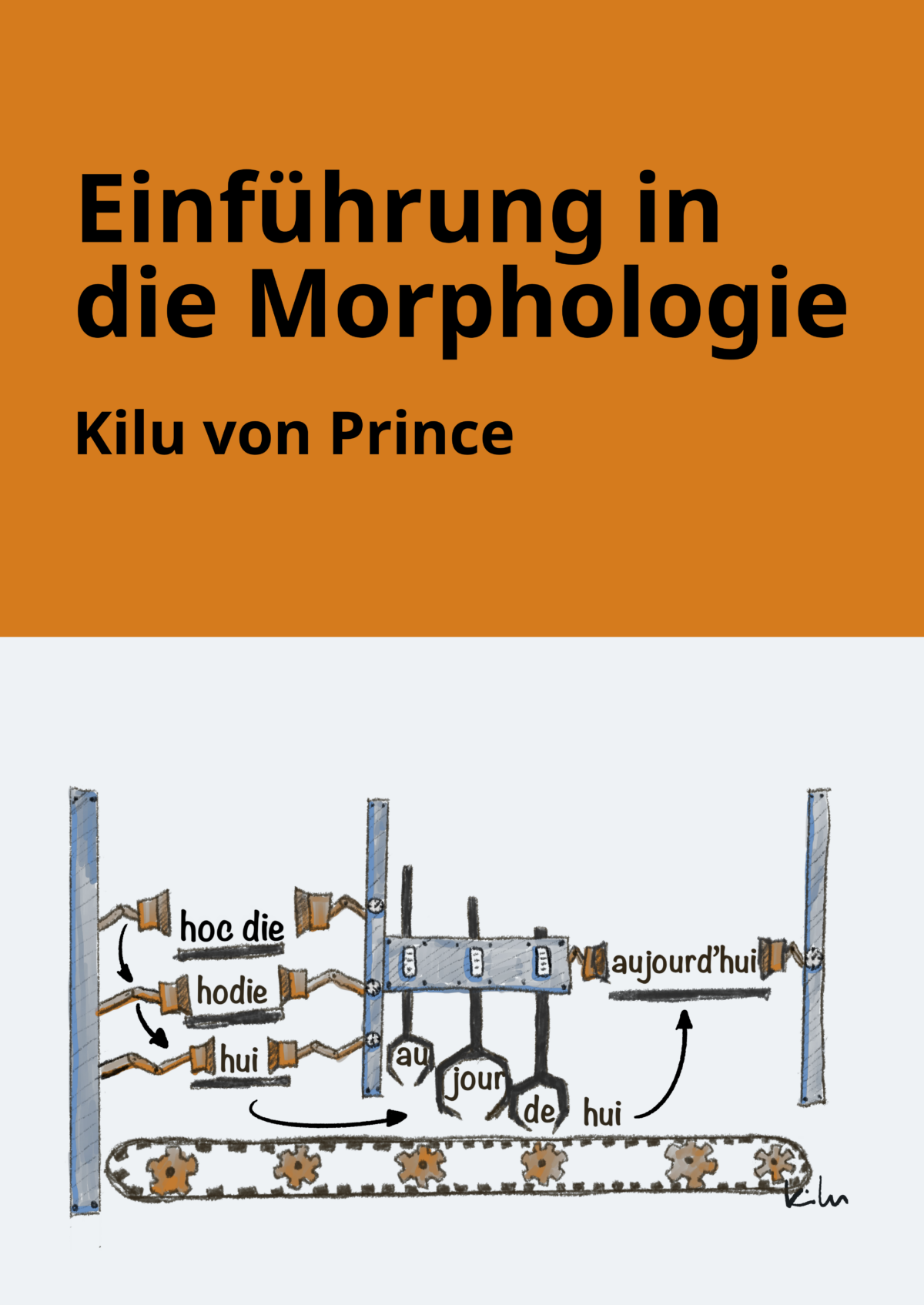I just published my intro to morphology (Einführung in die Morphologie, in German). It starts out from the idea of the morphological cycle, which suggests that languages move through stages of isolating, agglutinating and fusional morphology, and uses this idea to introduce basic concepts of morphology, including inflection, derivation, paradigms, and different types and degrees of synthesis.
Category: Teaching
More resources on Chinese
For my class on the structure of Chinese, I wanted to give my students some accessible resources so they can make their own observations. To that end, I translated and glossed some texts. Among them are the lyrics to one song, as described here earlier. In addition, I processed two literary texts this way (with translations to German, glosses in English). One is the beginning of Lu Xun’s “Diary of a Madman”, a paranoid, Kafkaesque and brilliant text. For this one, I took the time to add two levels of glosses, one with literal morpheme-by-morpheme translations, one with the lexicalized meanings of multi-character words. The other one is the beginning of “Brothers” by Yu Hua.
Continue reading “More resources on Chinese”Syntactic Recursion
In the MA program, I taught a class on syntactic recursion during the winter term 2020/21. This is a topic that I have studied quite extensively before, and it features prominently in several past and ongoing grant proposals. I also think it’s an important and interesting topic that touches several fundamental debates in linguistics. I’m quite happy with the selection of texts we ended up discussing and the overall format. You can find my syllabus here.
Daakaka grammar class
One of the wonderful features of the linguistics curriculum at HHU are the obligatory classes on structures of non-Indoeuropean languages. They take 4 hours per week, instead of the regular 2, and I’m looking forward to teaching them on a regular basis. For the winter term of 2020/21, I taught a class on Daakaka. I’m quite happy with how it turned out, and so were my students. In the future, I’ll have to put more work into creating coherence. I might have gone a little wild with all the great tools one can explore during practice sessions. The syllabus can be found here. Since this was an online class, I also created short video lectures, some of which can be found here. If you want access to the full class on Moodle, or have comments or questions, don’t hesitate to contact me.
Exploring linguistic typology through language puzzles
In this class, we solve a linguistic puzzle each week, primarily from the International Olympiad of Linguistics. Topics include writing systems, number systems, verbal morphology, kinship systems, and others. I first taught this class in the winter of 2020/21. You can use my syllabus for inspiration, if you’d like to try this out. My students loved the class and so did I. Since this was a distant-learning class, I also prepared short video lectures for each session. You can watch some of them at the HHU mediathek. I will definitely teach this class again, probably with varying sets of puzzles.
Lyrics for Chinese class
Update: I did get great feedback on the lyrics by Charles Yang, who commented on exactly those places I was uneasy about. I updated the translation and am now finally getting around to uploading my homepage. You’ll find the revised translation under the link below. For more glossed texts, also see this post.
I’ll be posting a lot more about teaching here, since that is the current focus of my work. A most wonderful feature of the Düsseldorf curriculum are the classes on grammars of non-Indo-European languages, which take two sessions per week, rather than the usual one. This semester, I’ve been teaching Daakaka, and it’s been an intensely gratifying experience, on which I’ll certainly post more later. Right now, I’m planning a class on Mandarin Chinese for the summer term, and I decided to dedicate part of it to the worship of a song that I absolutely adore. It’s by the band 二手玫瑰 (èrshǒu méigui, Second Hand Rose), and I would translate it as “Let the artists get rich and their wealth trickle down”. The title is based on a quote by Deng Xiaoping, who said, basically, not everyone had to get rich at the same time, it was ok if a few people got rich first and passed on some of their wealth to their neighbours. I have glossed and translated the lyrics, take a look if you’re interested, and please let me know if you have more information about the song!

